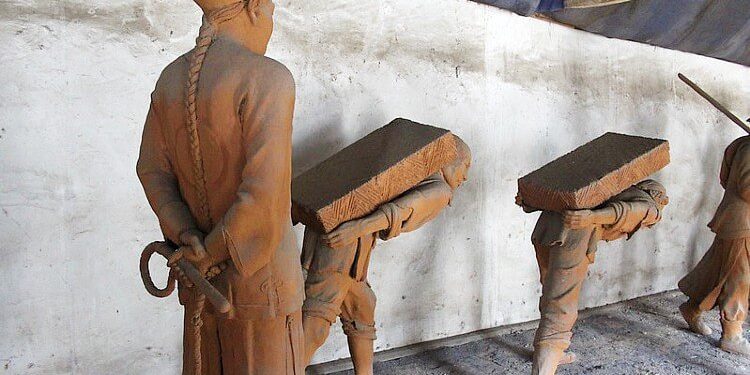Today The U.S. Department of Homeland Security has expanded the Uyghur Forced Labor Prevention Act (UFLPA) Entity List by adding five more companies from the People’s Republic of China.
This action, effective from August 9, 2024, now restricts goods from 73 entities linked to forced labor in Xinjiang, aiming to protect U.S. supply chains from unethical practices.
Strengthening Enforcement Against Forced Labor
The DHS’s recent addition of five People’s Republic of China-based companies to the UFLPA Entity List underscores the U.S. government’s commitment to combating forced labor.
These companies, involved in various industries such as mining, construction, and manufacturing, are believed to have ties to the forced labor of Uyghurs and other minority groups in the Xinjiang Uyghur Autonomous Region (XUAR).
As part of this expanded enforcement, U.S. Customs and Border Protection (CBP) will apply a rebuttable presumption against goods produced by these companies, effectively banning them from entering the United States unless proven otherwise.
Secretary of Homeland Security Alejandro N. Mayorkas emphasized the significance of this action, stating,
“We act to keep tainted goods out of our nation’s supply chains, ensuring a fair market and protecting human rights.”
Additions to the UFLPA Entity List:
- Century Sunshine Group Holdings, Ltd.: A Hong Kong-based company producing magnesium alloys and fertilizers, known to source materials from Xinjiang.
- Xinjiang Habahe Ashele Copper Co., Ltd.: A subsidiary of a major global mining company, implicated in forced labor practices within the XUAR.
- Rare Earth Magnesium Technology Group Holdings, Ltd. is a company based in Hong Kong that manufactures and sells magnesium alloy products.
- Kashgar Construction Engineering (Group) Co., Ltd. is a company based in Kashgar, Xinjiang, China, that manufactures structural components and materials for construction.
- Xinjiang Tengxiang Magnesium Products Co., Ltd. is a company based in Hami, Xinjiang, China, that manufactures magnesium and magnesium alloy products.
These entities are now under strict scrutiny by U.S. authorities, who continue to enforce the UFLPA with full vigor.
The Broader Impact on U.S. Supply Chains
The addition of these five companies to the UFLPA Entity List is a significant development in the broader effort to secure U.S. supply chains against the infiltration of goods produced through forced labor.
The UFLPA, signed into law by President Biden in December 2021, mandates that goods produced in Xinjiang or by entities on the UFLPA Entity List are presumed to be made with forced labor and are thus banned from importation into the United States.
Goods Affected by the Latest Additions
- Magnesium and related products, critical to various industries, sourced from Xinjiang.
- Construction materials and components, raising concerns across the U.S. construction sector.
This enforcement aligns with President Biden’s broader agenda to advance worker empowerment and high labor standards globally.
The DHS’s actions reflect a whole-of-government approach to tackling forced labor, as outlined in the Department’s recent Quadrennial Homeland Security Review.
The review emphasizes combating exploitation as a core mission of the DHS, highlighting the UFLPA’s role in this strategy.
A Critical Move in Protecting Human Rights
The decision to expand the UFLPA Entity List is not just about protecting U.S. markets; it is a clear statement against human rights violations.
The international community has widely condemned the forced labor of Uyghurs and other minority groups in Xinjiang. The U.S. government’s actions are part of a larger effort to hold those responsible for these abuses accountable.
By targeting companies that benefit from forced labor, the U.S. aims to cut off a significant source of profit for those perpetuating these practices.
DHS Under Secretary for Policy Robert Silvers, who chairs the Forced Labor Enforcement Task Force (FLETF), reinforced this stance by declaring the U.S. committed to keeping goods made with forced labor out of U.S. supply chains.
This commitment is vital to upholding human dignity and ensuring that American consumers are not complicit in the exploitation of vulnerable populations.
Impact on U.S. Importers
- Importers must conduct thorough due diligence to avoid sourcing from the affected companies.
- Businesses are urged to reassess their supply chains to ensure compliance with the UFLPA.
The UFLPA Entity List’s expansion sends a strong message to companies worldwide: forced labor has no place in the global economy, and those who engage in or facilitate it will face serious consequences.
The Final Word
The expansion of the UFLPA Entity List marks a significant step in the U.S. government’s ongoing efforts to combat forced labor and protect human rights. As more companies are added to the list, U.S. importers must remain vigilant in ensuring their supply chains are free from unethical practices.
The DHS’s actions serve as a reminder of the importance of ethical sourcing and the role that businesses play in upholding global human rights standards.
Further reading on the Uyghur forced labor.
Sources: THX News & US Department of Homeland Security.








